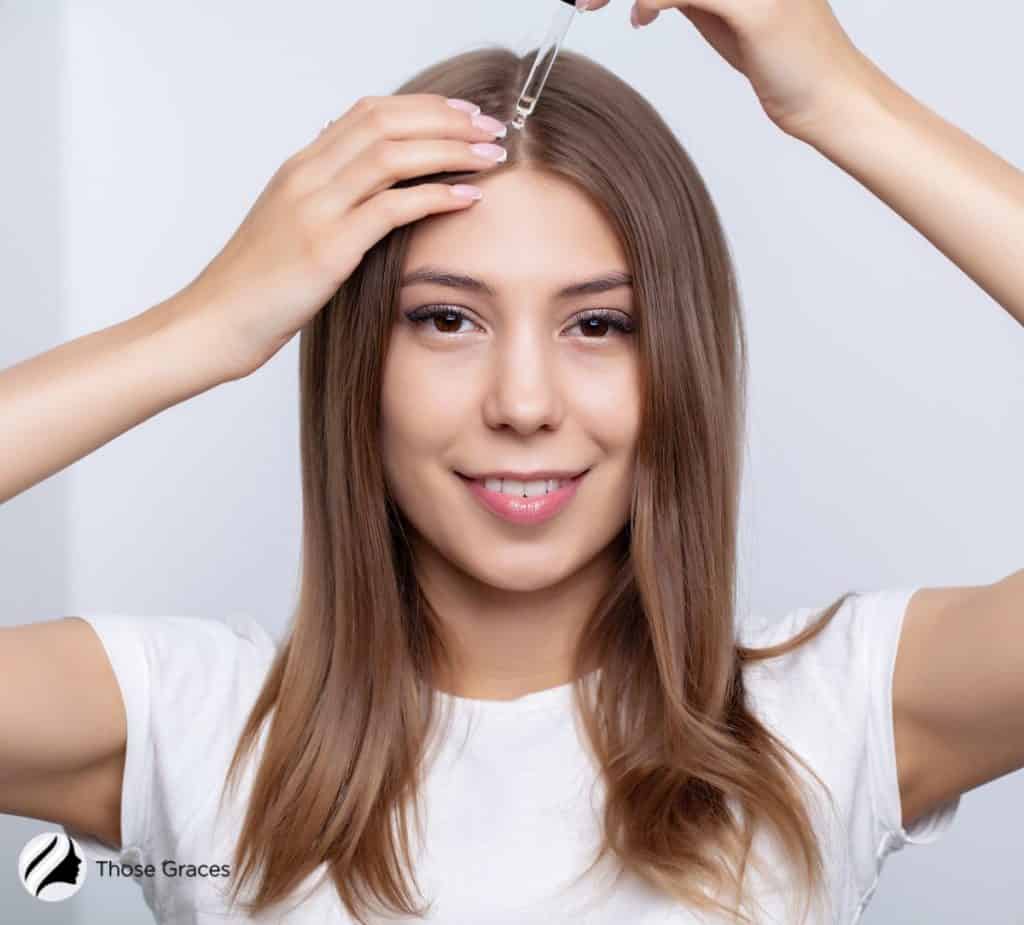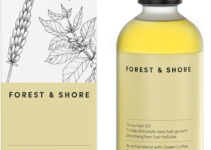Tired of Hair Thinning and seeking tips to revitalize and restore your hair? Here’s how!
As a renowned beauty expert, I’ve delved into recent studies like those led by Angela Christiano, revealing innovative treatments like JAK inhibitors and stem cell therapies that reawaken dormant hair follicles [1].
In this article, I’ll reveal the 9 pro-tested tips proven to revitalize and restore your mane – in no time!
So, keep reading to unveil the path to luscious, thick locks ASAP!
Key Takeaways
- Holistic Approach: Combining treatments like weekly conditioning, Minoxidil, essential oils, and a balanced diet can significantly mitigate hair thinning.
- Professional Consultation: Seeking advice from healthcare providers ensures personalized solutions and effectively addresses the underlying causes of hair thinning.
- Patience is Key: Restoration of hair thickness takes time; consistent application of treatments and maintaining a healthy diet are vital to achieving desired results.
Tired of Hair Thinning? Tips to Revitalize & Restore Your Hair
Use specialized treatments like conditioning masks and Minoxidil, or embrace natural aids like essential oils to combat thinning hair.
Include dietary changes and seek expert advice for a comprehensive, effective approach to restoring your locks.
Let’s start with the 9 proven tips…
Tip #1: Conditioners, Masks, and Hair Care Treatments
You also should incorporate once-weekly hair masks and conditioners to help restore moisture to dry strands.

Tip #2: Topical Treatments
It is probably best to consult a doctor or healthcare provider before topical treatment.
Minoxidil is a popular treatment you apply to the scalp to help promote oxygen and nutrients to your hair and help it grow..
Tip #3: Essential Oils
Premier-grade essential oils are more natural and inexpensive to help thicken your hair. Specific oils like tea tree oil can help stimulate your hair follicles.

Essential oils and vitamins, like butter to condition your beard, can also help promote thicker, fuller hair [2].
Tip #4: Vitamin Supplements
If you consult a doctor or nutritionist and discover that your thinning hair results from missing vitamins, you can take supplements to help.
There are other supplements out there that help boost hair restoration and growth as well.
Tip #5: Change Your Diet
Eating foods that contain vitamin B5, biotin, zinc, and iron can help promote hair growth. These nutrients are essential for a healthy scalp and hair growth.

Reducing processed foods and increasing fresh fruits, vegetables, nuts, seeds, and fish can help you get the vitamins and minerals needed for a healthier head of hair.
Some simple dietary changes can also treat the lack of nutrients and vitamins.
Consider if you lack iron, making your hair thin and brittle; incorporate some lean red meats, dried beans and fruits, and fish to help add that iron back into your body.
Tip #6: Limit Bleaching
Limit how often you bleach and dye your strands to keep them healthier.
Bleaching strips the melanin from your strands, making them extremely dry and brittle. It also leaves them more prone to breakage and other forms of damage.
Many people turn to hair treatments like Olaplex to mitigate the damage. However, a common query among those with delicate locks is, “Is Olaplex too heavy for fine hair?”
It’s essential to choose products that suit your hair type and texture.
To prevent excessive damage, limit how often you bleach your hair – once every three months.
Tip #7: Nourish Your Scalp
Nourishing your scalp with natural oils like olive, almond, and jojoba can help to improve the condition of your scalp and hair.

Massaging these oils into your scalp will also help promote blood flow to the area, which in turn helps stimulate new hair growth.
Specific medical treatments may be needed to help your thinning hair, so working with a healthcare professional can be most helpful when you notice losing more hair than usual.
Tip #8: Use Natural Remedies
Natural treatments and herbal remedies can be a great way to help restore your thinning hair.
Some of the most promising natural remedies include essential oils such as rosemary, coconut, and lavender.
Massaging these essential oils into your scalp has been known to stimulate hair growth.
Tip #9: JAK Inhibitor Therapies
After exploring various natural and traditional remedies, it’s crucial to shed light on the groundbreaking treatments making waves in the hair restoration landscape [1].
One such promising advancement is the introduction of JAK inhibitor therapies.
Stemming from comprehensive research and clinical trials, this innovative approach targets the root of hair loss, offering a scientifically-backed solution for individuals grappling with persistent thinning hair.
JAK inhibitors target specific enzymes that contribute to hair loss, intervening in their actions and promoting the revival of dormant hair follicles.
Moreover, treatments are becoming increasingly accessible and praised for their effectiveness in restoring hair density and promoting growth in affected areas.
Your doctor may ask specific questions or take a hair sample, sometimes even a blood test, to determine your diagnosis.
Let’s explore why patience is crucial to your hair revitalization journey.
Restoring Your Thinning Hair Takes Time
It could be weeks, months, or longer for your hair to look thicker and fuller again.
You can do a few things to help hide thinning spots, such as creating layers at your next salon visit and adding some volume or root touch-up products to help boost it.
Thinning hair can cause your strands to break; unfortunately, it is common for both men and women [3].
Since both men and women can experience thinning hair and hair loss, these are some of the best tips to help you restore and revitalize the strands so they grow thicker and fuller.
If you’re experiencing more than the usual hair loss, don’t worry. Help is at hand.
Seek professional advice to explore specialized treatments tailored just for you. One frequent question among those with fine locks is, “Is keratin good for thin hair?”
Consulting with a hair professional can provide insights into whether treatments like keratin would be beneficial for your specific hair type and condition.
Whether topical treatments to nourish your hair roots, addressing nutritional deficiencies, or tweaking your hair care routine to prevent damaged hair, every problem has a solution.
And as you embark on this journey, remember patience is your friend.
Each strand of your hair has its growth phase, and with the right care, even lifeless hair can be revived to its former glory.
The journey from thinning hair to vibrant, healthy hair is filled with discoveries, and every step you take brings you closer to unveiling a fuller, healthier mane that reflects your inner vitality.
Now that we’ve stressed patience and shared insightful tips to expedite hair restoration, let’s shift gears and uncover the signs behind hair thinning.
What Causes Hair Thinning? 4 Telltale Signs
Some risk factors for hair loss, like genetics, are beyond your control. If you know your mother or father suffered from thinning hair, there’s a strong chance you may find yourself suffering later in life, too.
Other reasons that you could be experiencing thin hair and some loss include the following:
Sign #1: Iron deficiency anemia
Iron deficiency anemia is one of the silent assailants of lush, vibrant locks.
If you’ve noticed an unusual level of fatigue or a drop in your energy levels, coupled with thinning hair, this could be a red flag.
Iron is pivotal in fueling hair follicle stem cells, ensuring each strand’s strength and vitality.
An unbalanced diet can lead to this deficiency, manifesting symptoms like heart palpitations and pale skin.
But do not worry; identifying and addressing this can begin a journey to restore your hair’s density and luster.
Sign #2: Other vitamin deficiency
Iron deficiency anemia is one of the silent assailants of lush, vibrant locks.
If you’ve noticed an unusual level of fatigue or a drop in your energy levels, coupled with thinning hair, this could be a red flag.
Iron is pivotal in fueling hair follicle stem cells, ensuring each strand’s strength and vitality.
An unbalanced diet can lead to this deficiency, manifesting in symptoms like heart palpitations and pale skin.
Sign #3: Stress
Stress – the name itself gives it away, a force that is virtually inexhaustible and can start dictating your life without you even realizing it.
It is not only the thoughts that get hold of us, but stress is present even in such a delicate domain as hair, which can become brittle and thin.
This is because emotional stress and hug stress influence blood flow to the head and scalp which is vital for hair nourishment and growth.
The result? An alteration from the normal phase of hair growth, accelerated hair cycle, and hair loss
Sign #4: Dyeing and Styling
Coloring and bleaching your hair often can exacerbate thinning hair and lead to more hair loss. Heat also damages fragile hair strands and can worsen the thinning.
Whether enriching your diet with iron, integrating essential vitamins, or adopting stress management practices, each action is a stride toward transformation.
In this journey, hair loss treatments aren’t just about addressing the symptoms but delving deep to root out the causes.
Skip ahead to this mind-blowing video from the brilliant Dr. Young:
With this information in your arsenal, let’s unravel the treasure trove of remedies, insights, and actionable tips awaiting in the Frequently Asked Questions section.
FAQs
1. What are JAK inhibitors?
2. How effective are natural remedies for hair regrowth?
3. Is hair thinning reversible?
4. Is professional consultation necessary for treating thinning hair?
Conclusion
Now that you’re tired of hair thinning and discovered Tips to revitalize & restore your hair, I’ll provide a short version of what you’ve learned…
Thankfully, a solution can be achieved with a variety of hair-combating strategies available, both natural and scientifically proven.
Every strand of hair can be revitalized, reflecting an individual’s overall health and confidence.
Throughout my guide, you’ve learned expert insights and evidence-based methods to assist you on your journey.
Now, you can navigate the paths of restoration, stepping into a world where every morning mirrors back a reflection marked by the fullness of thick, vibrant hair – radiating with life’s zest.
Last (but certainly not the least!), please drop a comment and tell me how much you enjoyed this post. As always, I’d love to hear from you.
Until next time…
Resources
1. Studies Uncover New Approaches to Combat Hair Loss in Men and Women. Columbia University Irving Medical Center [Internet]. 2019 Jun 19; Available from: https://www.cuimc.columbia.edu/news/studies-uncover-new-approaches-combat-hair-loss-men-and-women
2. Beard Butters – All-Natural Ingredients for Hydration [Internet]. Badass Beard Care. [cited 2023 Sep 29]. Available from: https://badassbeardcare.com/collections/beard-butters
3. Hoss E. Hair loss: MedlinePlus Medical Encyclopedia [Internet]. medlineplus.gov. 2023. Available from: https://medlineplus.gov/ency/article/003246.htm



